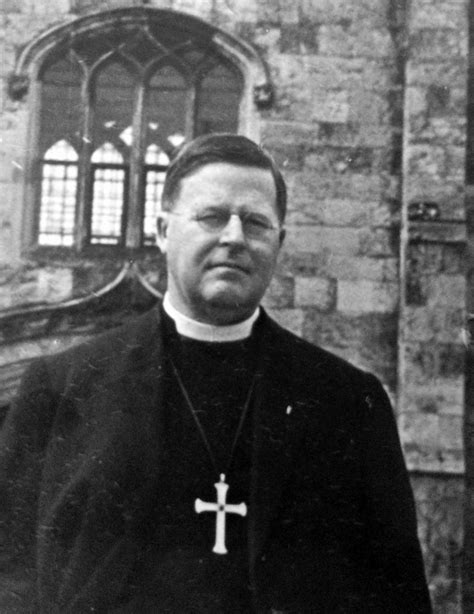A Quote by J. G. Holland
A man does not necessarily sin who does that which our reason and our conscience condemn.
Quote Topics
Related Quotes
For, above all, I hold a notion of possibility and necessity according to which there are some things that are possible, but yet not necessary, and which do not really exist. From this it follows that a reason that always forces a free mind to choose one thing over another (whether that reason derives from the perfection of a thing, as it does in God, or from our imperfection) does not eliminate our freedom.
There are three means of believing--by inspiration, by reason, and by custom. Christianity, which is the only rational institution, does yet admit none for its sons who do not believe by inspiration. Nor does it injure reason or custom, or debar them of their proper force; on the contrary, it directs us to open our minds by the proofs of the former, and to confirm our minds by the authority of the latter.
Does the open wound in another's breast soften the pain of the gaping wound in our own? Or does the blood which is welling from another man's side staunch that which is pouring from our own? Does the general anguish of our fellow creatures lessen our own private and particular anguish? No, no, each suffers on his own account, each struggles with his own grief, each sheds his own tears.
Christianity can be described as a theological materialism: It is that which transforms our material existence. If our faith does not throw us into the arms of the world, if it does not lead to our experience of responsibility, love, celebration, and our commitment to transformation, then, whatever we call it, we have nothing but an empty shell.
...the gross national product does not allow for the health of our children, the quality of their education or the joy of their play. It does not include the beauty of our poetry or the strength of our marriages, the intelligence of our public debate or the integrity of our public officials. It measures neither our wit nor our courage, neither our wisdom nor our learning, neither our compassion nor our devotion to our country, it measures everything in short, except that which makes life worthwhile.
Nothing cuts the nerve of the desire to pursue holiness as much as a sense of guilt. On the contrary, nothing so motivates us to deal with sin in our lives as does the understanding and application of the two truth that our sins are forgiven and the dominion of sin is broken because of our union with Christ.
Worship is the submission of all our nature to God. It is the quickening of conscience by His holiness; the nourishment of mind with His truth; the purifying of imagination by His Beauty; the opening of the heart to His love; the surrender of will to His purpose - and all of this gathered up in adoration, the most selfless emotion of which our nature is capable and therefore the chief remedy for that self-centeredness which is our original sin and the source of all actual sin.
We have more than two options. A critique of reason does not have to be a call for the return of superstition and arbitrary power. Our problems do not lie with reason itself but with our obsessive treatment of reason as an absolute value. Certainly it is one of our qualities, but it functions positively only when balanced and limited by the others.
God really does take our work seriously: It is wrong, it is a sin, to accept or remain in a position that you know is a mismatch for you. Perhaps that's a form of sin you've never considered - the sin of staying in the wrong job. But God did not place you on the earth to waste away your years in labor that does not employ his design or purpose for your life, no matter how much you may be getting paid for it.
Every man on earth is sick with the fever of sin, with the blindness of sin and is overcome with its fury. As sins consist mostly of malice and pride, it is necessary to treat everyone who suffers from the malady of sin with kindness and love. This is an important truth, which we often forget. Very often we act in the opposite manner: we add malice to malice by our anger, we oppose pride with pride. Thus, evil grows within us and does not decrease; it is not cured - rather it spreads







































